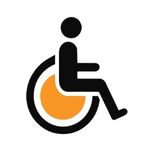
NSFAS helps South African students pay for studies at public universities or TVET colleges. It covers tuition, registration, accommodation (within limits), books, food, travel, and personal costs. To apply, you must be a South African citizen or permanent resident, have passed matric, and plan to study for your first undergraduate qualification. Your household income must be R350 000 or less, or up to R600 000 if you have a disability.
Key Takeaways
- NSFAS Covers Full Study Costs: NSFAS provides financial support for tuition, registration, accommodation, transport, learning materials, and living expenses for qualifying South African students enrolled at public universities or TVET colleges.
- Eligibility Is Based on Income and Citizenship: To apply, students must be South African citizens or permanent residents, have passed matric, and come from households earning R350 000 or less per year (or up to R600 000 for students with disabilities).
- Application Must Be Done Online with Full Documents: Students must apply through the myNSFAS portal by the deadline, submit all required documents, and ensure all personal and financial information is accurate to avoid delays or rejection.
About Arcadia Finance
Make your loan journey effortless with Arcadia Finance. With no application fees and access to 19 reputable NCR-compliant lenders, you can count on a smooth, trustworthy experience tailored to your personal financial goals.
What Is The NSFAS?
The National Student Financial Aid Scheme (NSFAS) is a government-funded programme that offers financial support to eligible students pursuing studies at public universities or Technical and Vocational Education and Training (TVET) colleges in South Africa. NSFAS provides this assistance in the form of bursaries and loans, aimed at helping students from low-income and working-class households.
Each year, NSFAS opens its online application and registration period toward the end of the calendar year, with the application deadline usually falling in the early months of the following year. Applicants are expected to apply through the NSFAS website and submit all required documents before the deadline.
The support provided by NSFAS goes beyond covering tuition fees. NSFAS also pays for student registration, accommodation, learning materials, transport, and other living expenses. These payments are made through NSFAS allowances, which are disbursed using the student’s NSFAS-linked bank account. The aim is to make higher education more accessible to those who would otherwise not be able to afford it.

NSFAS Loan Eligibility Criteria
To be considered for an NSFAS loan, an applicant must be a South African citizen or a permanent resident with a valid South African ID document. In addition, the applicant must be enrolled at a public TVET college or a public university. NSFAS will only provide loan support to students who are registered in courses that are included in the approved list of qualifications eligible for funding. Another key requirement is that the applicant’s combined gross household income must be less than R350 000 (or less than R600 000 if the student has a disability) per year, as above these levels qualifies the student for loan-based financial assistance rather than a full bursary.
When NSFAS Loans Will Be Discontinued
There are several situations in which NSFAS may cancel or withdraw a student’s loan funding:
- If the household income increases or no longer falls within the specified financial range, the student may become ineligible.
- Failure to meet academic performance criteria will result in the suspension of loan support.
- University students are expected to maintain a minimum average academic score of 60 percent each year in order to continue receiving funding.
- TVET college students must pass at least three of the four subjects in a Report 191 programme, or must have passed a minimum of five subjects in the previous N-Level, depending on the qualification structure.
- If a student switches to a qualification that is not included in the approved list of funded courses, they may lose access to the loan.
- Receiving a full bursary or loan from another funding body may lead to NSFAS ending its support.
- If the student no longer meets the requirements of the University N+ rule or the TVET College N+ rule, the loan may be withdrawn.
- NSFAS may terminate funding if the student is found to have committed fraud or misrepresented their circumstances.
- If a student was funded by mistake due to an error in the application or evaluation process, the loan may be cancelled.
- Where an institution provided incorrect details that led to the student being funded incorrectly, NSFAS may recover or halt the funding.
- If a student submitted false or misleading information during the application, any loan awarded as a result of that information may be withdrawn.
- If duplicate registration records are received from different institutions for the same student, and the conflict remains unresolved, NSFAS may suspend the funding.
If your NSFAS application is declined, you may wonder whether private funding is an option. Our guide explains whether you can apply for a loan as a student in South Africa, what lenders require, and how to avoid over-borrowing during your studies.

Breakdown Of NSFAS Payment Amounts

Tuition Fees
NSFAS fully covers tuition fees for qualifying students enrolled in public universities or Technical and Vocational Education and Training (TVET) colleges. For the 2025 academic year, students do not need to pay for tuition if they meet all funding requirements.
- University students: NSFAS will pay the full cost of undergraduate tuition.
- TVET students: Tuition will be covered for registered vocational and technical qualifications.
This ensures that no eligible applicant is blocked from further education due to tuition costs.

Accommodation Allowance
Students who do not stay at home may qualify for an accommodation allowance to assist with housing expenses. This support applies to both university and TVET students living in approved accommodation near their campus.
Allowance estimates for 2025:
- University students: Up to R45 000 per year for accredited student housing or approved private accommodation.
- TVET students: Up to R33 000 per year for registered accommodation.
Accommodation must meet NSFAS accreditation requirements to receive payment. This is done to help ensure students live in suitable and secure conditions.

Living Allowance
NSFAS also offers a living allowance to help students manage everyday costs like food, toiletries, and personal items. This is available to both university and TVET students.
Living allowance for 2025:
- All students: R1 650 per month.
The aim is to support students so they can focus on their studies without having to worry about daily expenses.

Transport Allowance
Students who travel to and from their institution, rather than staying in accommodation, may receive a transport allowance. This allowance is meant to reduce the financial burden of commuting.
Transport allowance for 2025:
- All qualifying students: Up to R7 500 per year.
This applies to students living within 40 kilometres of their campus and attending classes in person.

Learning Material Allowance
NSFAS gives students a learning material allowance to buy study tools, including books and basic academic supplies. The allowance may also be used to purchase a laptop or other required equipment.
Learning material allowance for 2025:
- All students: R5 200 per year.
This allowance helps cover educational essentials that students need throughout the year.

Disability Allowance
Students with disabilities receive extra support through a disability allowance. This is provided to meet specific needs, such as assistive equipment or personal support services.
Disability support for 2025:
- Assistive devices: Covered based on the cost of the device needed.
- Personal assistance and support services: Funding based on the student’s individual needs.
Students must complete the Disability Annexure Form to apply for this funding. This helps ensure that the support is tailored correctly.
Receiving funding is only the first step. Knowing how to budget as a student in South Africa can help you stretch your monthly allowance for accommodation, food, data and transport. Many students struggle financially not because funding is insufficient, but because budgeting skills are missing.

How Do NSFAS Applications Work?
Students who are either already studying or planning to study at a public university or TVET college can apply for NSFAS funding by using the myNSFAS online platform. Applications must be completed and submitted during the specified application window. These dates are usually announced well in advance on official websites and other public platforms. The online process is designed to be user-friendly and does not require in-person visits.
The application must be submitted through your myNSFAS account, which you can create on the NSFAS website. Once you have registered and logged in, you will be asked to fill in personal details and upload your supporting documents. The details you provide must be correct and complete.
Supporting Documents and Personal Information
When filling out your application, you must include key personal details such as your ID number, your own cellphone number, and details about your parents, guardians or spouse, if applicable. These are used for contact purposes and also for checking financial eligibility.
You will also need to upload supporting documents, which usually include:
- A certified copy of your South African ID document
- Proof of income for your parents or guardians
- If applicable, a letter from SASSA confirming social grant receipt
- A completed NSFAS consent form
Demand and Processing Time
Because NSFAS is the largest bursary scheme in South Africa, it receives a very high number of applications each year. This means that students may need to wait a while before receiving confirmation about whether they have been approved. The application process involves several steps, and applicants should be aware that response times may vary based on the volume of submissions.
Despite the wait, those who are approved will receive significant financial help, which can cover the cost of tuition, accommodation, food, and study materials. NSFAS funding can make a major difference for students who come from households that cannot afford the cost of higher education.
Steps to Create and Submit Your NSFAS Application
| Step | Description |
|---|---|
| 1. Create a myNSFAS Account | Begin by setting up your myNSFAS account on the official NSFAS website. This account is essential for submitting your application, tracking your status, and managing your funding once approved. |
| 2. Prepare Personal Information | You will need a valid South African ID number, a working cellphone number, and a secure email address. These details must exactly match your official documents. |
| 3. Log In and Start the Application | After registering, log in to your myNSFAS account to access the application form. The system will take you through a step-by-step process, asking you to complete various fields and upload required documents. |
| 4. Upload All Supporting Documents | Make sure to upload every required document before submitting the application. Missing or incorrect documents can delay or block your funding. |
| 5. Ensure All Information Is Accurate | Double-check all the information you provide. NSFAS verifies your details with third-party sources such as the Department of Home Affairs and SARS. |
| 6. Understand the Consequences of False Information | If NSFAS finds incorrect or misleading information during their checks, your application may be rejected. If funding has already been approved, it can be withdrawn. Legal action may be taken against applicants who knowingly submit false details. |
Conclusion
NSFAS plays a key role in helping South African students from low-income households gain access to higher education without financial stress. By covering a wide range of study-related costs, including tuition, housing, and daily expenses, NSFAS ensures that qualified students can focus on their studies. The application process is done online through the myNSFAS portal and requires accurate personal and financial information, along with supporting documents. If you’re finishing matric or already enrolled at a public university or TVET college, understanding the requirements and applying on time can make a real difference in your academic journey.
Frequently Asked Questions
To qualify, you must be a South African citizen or permanent resident, have passed matric, and plan to study for your first undergraduate qualification at a public university or TVET college. Your household income must be R350 000 or less, or up to R600 000 if you have a disability.
NSFAS pays for tuition, registration, accommodation, transport, learning materials, and a monthly living allowance. Additional support is available for students with disabilities, including funding for assistive devices and personal support.
You need to create a myNSFAS account on the official NSFAS website, complete the application form, and upload all required documents. These may include your ID, proof of income, and a consent form. Make sure everything is submitted before the closing date.
Yes, students who are already enrolled at a public university or TVET college can apply, as long as they meet the eligibility requirements. NSFAS also allows returning students to reapply if they continue to qualify.
If you submit incorrect or false details, NSFAS may reject your application. If funding was already approved, it can be cancelled, and you may be required to pay the money back. Legal action may also be taken in cases of fraud.
Fast, uncomplicated, and trustworthy loan comparisons
At Arcadia Finance, you can compare loan offers from multiple lenders with no obligation and free of charge. Get a clear overview of your options and choose the best deal for you.
Fill out our form today to easily compare interest rates from 19 banks and find the right loan for you.


